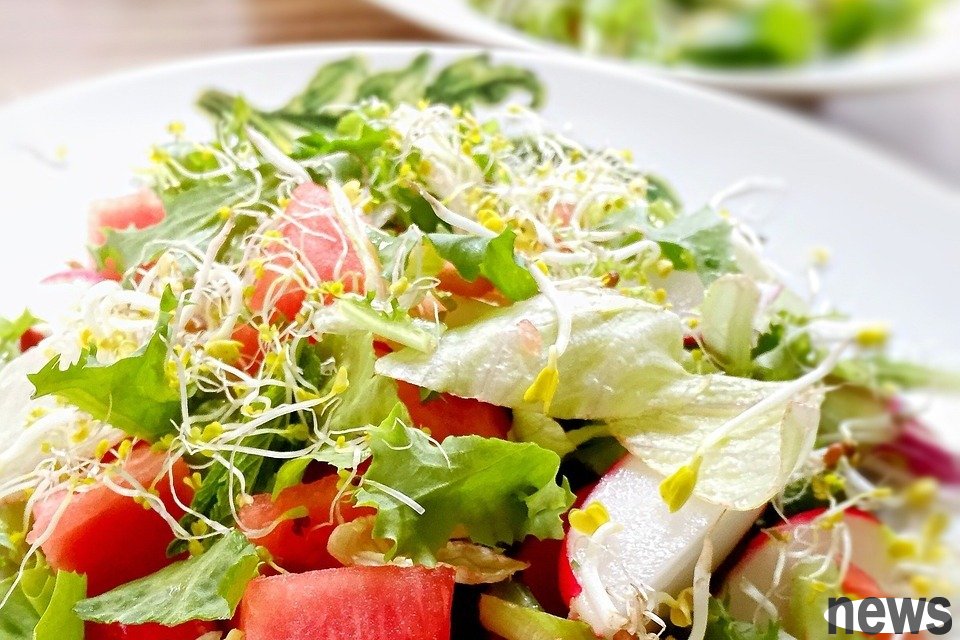
Lettuce salad is a very popular dish on the dining table. Many people think it is refreshing and has no burden, and can also take in the dietary fiber and nutrients of vegetables. It is a relatively healthy diet choice. However, an American food scientist said in the community that one of the mine foods she would avoid on weekdays is "raw sprouts."
A food hygiene expert who has been following more than 110,000 fans on Tiktok said that the "raw sprouts" that often appear in salad plates, such as alfalfa sprouts and pea sprouts, are in her eyes high-risk foods. Raw sprouts are actually sprouting plant seeds. They grow in a wet and hot environment and are the perfect warming bed for bacteria to grow. If contaminated by bacteria such as cystella, listeria or salmonia, it may lead to food poisoning.
@hydroxideTwo foods I AVOID as a food scientist #foodscience #foodscientist #raremeat
♬ original sound - hydroxide - food scientistShe suggested that if you really want to eat bean sprouts, it is best to blanch them, boil them at high temperature or fry them before eating them. However, although high-temperature cooking can solve the risks of eating raw bean sprouts, she still warns that when dealing with raw bean sprouts, it is important to note that moisture with bacteria may also cause pollution to kitchen supplies, cooking noodles or sinks.

Clemson University also found that the number of microorganisms on sprouted seeds can reach 1 billion, but just a dozen or hundreds of sedum or cypress bacteria can make people sick.
Disgust, abdominal distension, vomiting, stomach aches, fatigue and chills are all symptoms of food poisoning. They may occur within hours or even days after eating contaminated food. If the public develops symptoms of physical inappropriate physical condition, they must take medicine as early as possible.